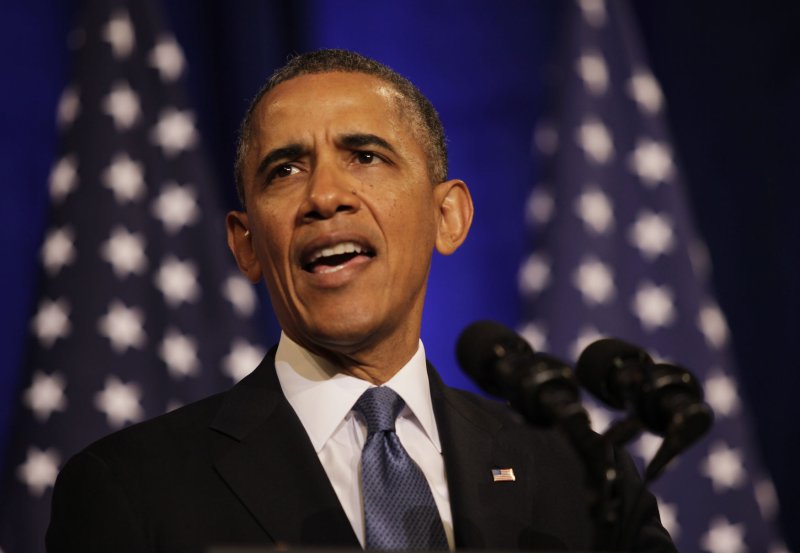President Barack Obama called for a revamping of U.S. surveillance procedures during a speech at the Department of Justice in Washington, DC on January 17, 2014. The president's announcement came after a White House review following leaks regarding secret surveillance programs by the National Security Agency (NSA). UPI/Aude Guerrucci/Pool |
License Photo
GENEVA, Switzerland, March 12 (UPI) -- Human Rights Watch said Wednesday the United Nations should hold Washington to account for its controversial surveillance program.
"The mass communications surveillance revealed by Edward Snowden demonstrates a shocking disregard by the United States for the privacy rights of both those inside the country and those abroad," Andrea Prasow, senior national security counsel at Human Rights Watch, said in a statement in Geneva, Switzerland, Wednesday.
Snowden, a former contractor for the U.S. National Security Administration, leaked details of a data gathering cyber-espionage program to the media last year. The program reached into the offices of top European leaders.
Members of the European Parliament said the United States may face consequences for the surveillance program. In a resolution passed Wednesday, they said "illegal mass surveillance" is rarely justified.
The U.S. government appears this week before the U.N. Human Rights Committee for its periodic review. The rights group said it was joining international voices in saying the controversial espionage program was a violation of basic civil liberties.
"The U.S. review is the perfect time for the Human Rights Committee to make clear that mass communications surveillance, whether against a country's own citizens or another country's, violates basic rights," Prasow said.





